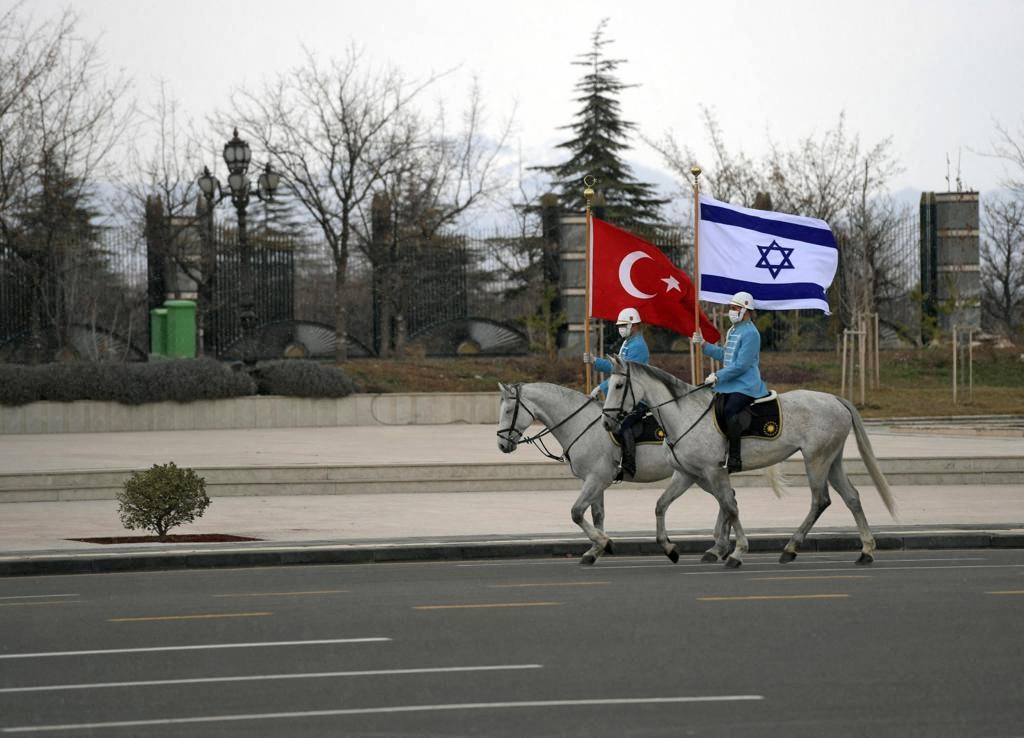Turkey: Police leaks to press reveal more details about Israeli spy network

An Israeli intelligence network recently disrupted by Turkish police was collecting information about Palestinian nationals and others linked to Hamas on a large scale, according to several leaks by security sources to Turkish media outlets.
Turkish intelligence and police officers detained 34 suspects in various provinces last week and a court ordered the formal arrest of 15 suspects on Friday.
Testimonies by suspects to police revealed that spies were made to undertake a number of tasks, including the collection of personal information of Palestinians, photographs of stores associated with them and information about apartment complexes where they were believed to reside.
The leaks suggest informants passed on intelligence as recently as the aftermath of the 7 October attacks by Hamas, which triggered the ongoing conflict in Gaza.
One suspect, who is still at large and is codenamed MZ, is believed to be a former bodyguard of Hamas political leader Khalid Meshaal. He is accused of working with Israeli intelligence officials and passing on undetermined information.
Stay informed with MEE's newsletters
Sign up to get the latest alerts, insights and analysis, starting with Turkey Unpacked
The police alleges that said information collected by the suspects was sent to an Israeli division called "Israeli Intelligence Service Online Operations Center”.
Turkish officials say both Mossad and the Israeli domestic intel agency Shin Bet ran the operations in their country, but it isn’t clear which agency controls the centre.
What is known is that the networks were large and amassed substantial information about Turkey's Palestinian community.
Handing over information
One suspect codenamed HMA was working at Istanbul's Fatih district health directorate as a community support officer because of his knowledge of Arabic, and was specifically tasked with collecting information about wounded and lower-income individuals who had arrived from Palestine.
Police accuse HMA of taking advantage of his position within the health system and selling information to Israeli intelligence officials.
The police report says he had an encryption software called “Truecyrpt” installed on his devices to protect certain files. The programme hasn’t been developed or supported since 2014, but it is an effective freeware tool that allows users to locally encrypt files on their computer before sending it onwards to another user through the internet.

Another suspect, a Syrian codenamed HH, had taken photographs of apartment exteriors where Palestinians were believed to be living.
Police said that the photos were uploaded to Google Maps and then transmitted to Israeli handlers.
HH was allegedly paid 12,400 Turkish lira ($414) on 14 December for providing the pictures.
Lebanese citizen MB is accused of spying on the International Willpower Youth Association, an organisation raising awareness about the Palestinian plight.
A member of staff at the organisation, MB is said to have shared the personal information of around 20 to 25 individuals associated with his employer for $500. Turkish police allege that MB sent the relevant information to the Israeli centre.
A Turkish citizen, codenamed KA, was working at an educational foundation in Istanbul, which aimed to provide scholarships to Palestinians.
Other nationalities involved include Kenyan citizens, who are believed to have passed on payments to the alleged spies.
Turkish authorities believe an additional 12 suspects remain at large and have likely left the country.
The December crackdown is the fourth Turkish counterintelligence operation against a network of informants and operatives associated with Israel’s intelligence services since 2021.
Turkish intelligence officials say there are two groups of people the Israelis work with - some are given routine tasks, while others are involved operationally.
Middle East Eye delivers independent and unrivalled coverage and analysis of the Middle East, North Africa and beyond. To learn more about republishing this content and the associated fees, please fill out this form. More about MEE can be found here.




